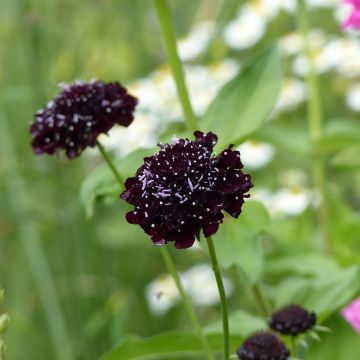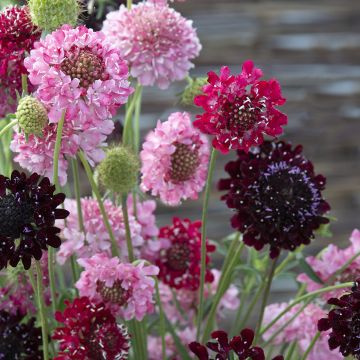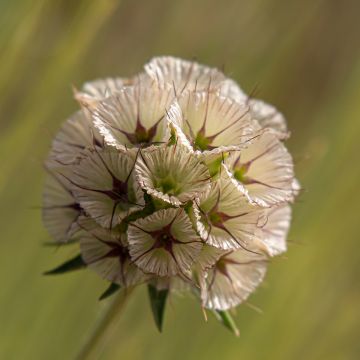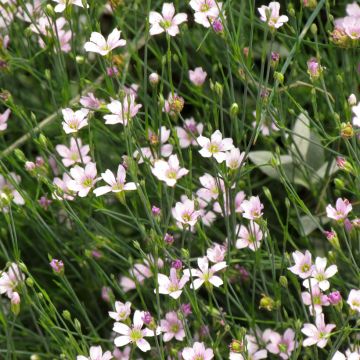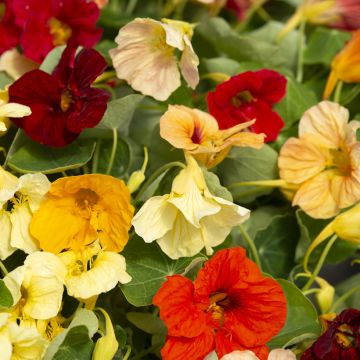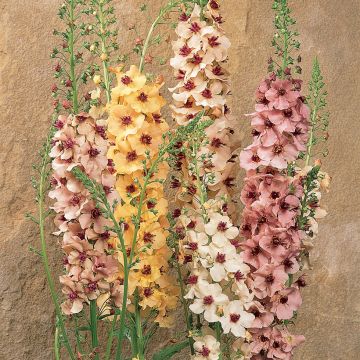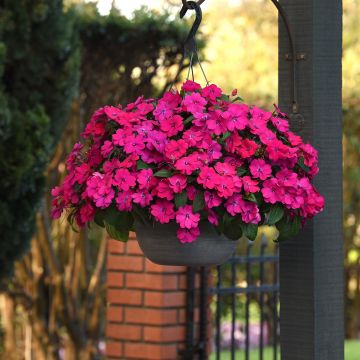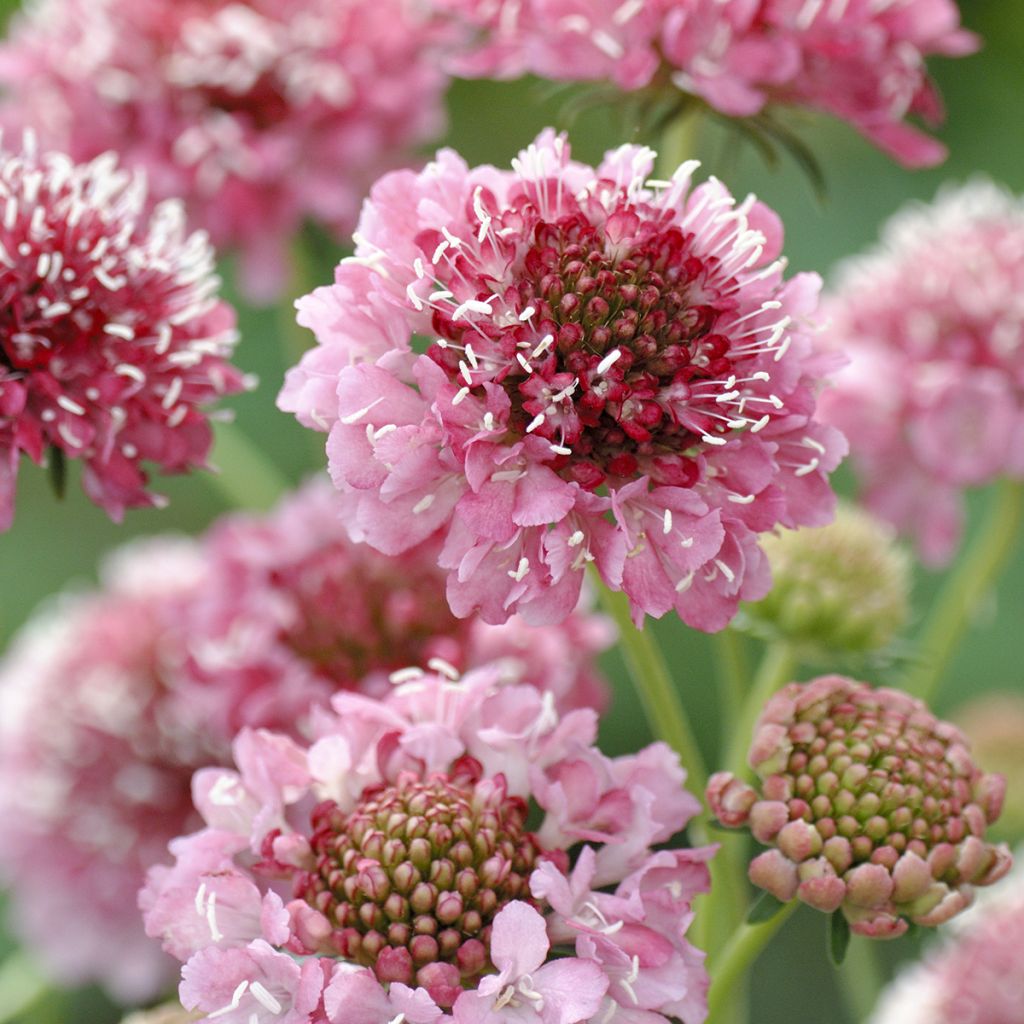

Scabiosa atropurpurea Salmon Queen Seeds
Scabiosa atropurpurea Salmon Queen Seeds
Scabiosa atropupurea Salmon Queen
Sweet Scabious
Special offer!
Receive a €20 voucher for any order over €90 (excluding delivery costs, credit notes, and plastic-free options)!
1- Add your favorite plants to your cart.
2- Once you have reached €90, confirm your order (you can even choose the delivery date!).
3- As soon as your order is shipped, you will receive an email containing your voucher code, valid for 3 months (90 days).
Your voucher is unique and can only be used once, for any order with a minimum value of €20, excluding delivery costs.
Can be combined with other current offers, non-divisible and non-refundable.
Home or relay delivery (depending on size and destination)
Schedule delivery date,
and select date in basket
This plant carries a 6 months recovery warranty
More information
We guarantee the quality of our plants for a full growing cycle, and will replace at our expense any plant that fails to recover under normal climatic and planting conditions.
Would this plant suit my garden?
Set up your Plantfit profile →
Description
Scabiosa atropurpurea 'Black Knight' is a biennial or short-lived perennial that is grown as an annual in most of our climates. The flowers are like small, almost black pompoms that sway at the top of long, slender stems, giving it a distinct rural look. It blooms throughout the summer, provided that faded flowers are regularly removed, and is surrounded by a procession of butterflies and other foraging insects. Really easy to grow in light soil, it spontaneously self-seeds in light soil and its flowers last for a long time in bouquets.
All sweet Scabious are discreet and slender looking plants. The 85 or so species that make up this genus belong to the family Dipsaceae and are distributed throughout the temperate zone of the globe. Scabiosa atropurpurea, also known as Sweet Scabious, is a plant native to Southern Europe that develops from a deep and extensive root system. This plant is often grown as an annual, although it is actually a short-lived perennial. The 'Black Knight' cultivar is characterized by its very dark inflorescences that are sometimes retouched with some white tips. The deciduous foliage is composed of finely cut, coarsely toothed, lanceolate, grey-blue leaves. It grows at ground level, around the base of the plant, forming a flat rosette that lies flat on the ground. Flowering takes place from July to October. Each plant produces up to 400 flowers and numerous stems, each bearing a single domed flower head at a height of 50-60cm that measures 5cm in diameter and consists of a multitude of tiny flowers of such a dark burgundy red that they appear almost black. The stamens look like miniature pincushions which explains it's English nickname "Pincushion Flower". The fragrant flowers are very melliferous and nectar-rich.
This star of gardens of the past has been somewhat neglected these last years but has crept back into the spotlight with extraordinary, new colours. They are graceful, elegant, and far from being austere as their English name "mournful widow" suggests. Sweet scabious are best planted in small groups, scattered among the grasses or larger flowers, as to bring a delicate touch of colour to beds. They prefer sunny locations which promotes blooming and are not very demanding when it comes to the nature of the soil as long as it is well-drained and even if it is downright chalky. Pick the flowers to encourage the renewal of blooms or leave them to dry where they are. They bring a lot of charm to winter settings and often self-seed spontaneously.
The dark colour of 'Black Knight' flowers goes well with blue or pink-flowered cornflowers, Cosmos and love-in-a-mist. All the lighter textured annuals go well with sweet Scabious and it is so easy to mix different seeds together to quickly create a small colourful meadow or cover a slightly wild-looking slope. Linaria maroccana, Gilia capitata, exotic Poppies, common poppies, Gypsophila, Godetia, and snapdragons will enliven the garden with the incessant flight of foraging insects for at least 3 months, bringing a breath of naturalness to the garden while preserving biodiversity.
Report an error about the product description
Flowering
Foliage
Plant habit
Botanical data
Scabiosa
atropupurea
Salmon Queen
Dipsacaceae
Sweet Scabious
Cultivar or hybrid
Other Scabiosa seeds
View all →Planting and care
Scabiosa atropurpurea is best sown under cover in a tray from March onwards. If frost persists in your region, wait until April, as these seeds prefer a temperature of around 18 to 20 °C. They will emerge in a couple of weeks.
Cover the seeds lightly with a thin layer of growing medium (3mm) and keep it slightly moist. When the seedlings are large enough to be moved, you can place them in open ground as soon as all risk of frost has passed. Keep an eye out for snails and slugs.
You can also sow them directly in the open ground from April, if your climate is mild, or in May if you are still afraid of the cold temperatures. Loosen the soil and lightly bury the seeds by spacing them 15-20 cm apart. If necessary, you can thin out the seedlings by removing some as soon as they emerge. Choose a sunny spot and slightly moist soil that is neither heavy nor wet.
Sowing period
Intended location
This item has not been reviewed yet - be the first to leave a review about it.
Similar products
Haven't found what you were looking for?
Hardiness is the lowest winter temperature a plant can endure without suffering serious damage or even dying. However, hardiness is affected by location (a sheltered area, such as a patio), protection (winter cover) and soil type (hardiness is improved by well-drained soil).

Photo Sharing Terms & Conditions
In order to encourage gardeners to interact and share their experiences, Promesse de fleurs offers various media enabling content to be uploaded onto its Site - in particular via the ‘Photo sharing’ module.
The User agrees to refrain from:
- Posting any content that is illegal, prejudicial, insulting, racist, inciteful to hatred, revisionist, contrary to public decency, that infringes on privacy or on the privacy rights of third parties, in particular the publicity rights of persons and goods, intellectual property rights, or the right to privacy.
- Submitting content on behalf of a third party;
- Impersonate the identity of a third party and/or publish any personal information about a third party;
In general, the User undertakes to refrain from any unethical behaviour.
All Content (in particular text, comments, files, images, photos, videos, creative works, etc.), which may be subject to property or intellectual property rights, image or other private rights, shall remain the property of the User, subject to the limited rights granted by the terms of the licence granted by Promesse de fleurs as stated below. Users are at liberty to publish or not to publish such Content on the Site, notably via the ‘Photo Sharing’ facility, and accept that this Content shall be made public and freely accessible, notably on the Internet.
Users further acknowledge, undertake to have ,and guarantee that they hold all necessary rights and permissions to publish such material on the Site, in particular with regard to the legislation in force pertaining to any privacy, property, intellectual property, image, or contractual rights, or rights of any other nature. By publishing such Content on the Site, Users acknowledge accepting full liability as publishers of the Content within the meaning of the law, and grant Promesse de fleurs, free of charge, an inclusive, worldwide licence for the said Content for the entire duration of its publication, including all reproduction, representation, up/downloading, displaying, performing, transmission, and storage rights.
Users also grant permission for their name to be linked to the Content and accept that this link may not always be made available.
By engaging in posting material, Users consent to their Content becoming automatically accessible on the Internet, in particular on other sites and/or blogs and/or web pages of the Promesse de fleurs site, including in particular social pages and the Promesse de fleurs catalogue.
Users may secure the removal of entrusted content free of charge by issuing a simple request via our contact form.
The flowering period indicated on our website applies to countries and regions located in USDA zone 8 (France, the United Kingdom, Ireland, the Netherlands, etc.)
It will vary according to where you live:
- In zones 9 to 10 (Italy, Spain, Greece, etc.), flowering will occur about 2 to 4 weeks earlier.
- In zones 6 to 7 (Germany, Poland, Slovenia, and lower mountainous regions), flowering will be delayed by 2 to 3 weeks.
- In zone 5 (Central Europe, Scandinavia), blooming will be delayed by 3 to 5 weeks.
In temperate climates, pruning of spring-flowering shrubs (forsythia, spireas, etc.) should be done just after flowering.
Pruning of summer-flowering shrubs (Indian Lilac, Perovskia, etc.) can be done in winter or spring.
In cold regions as well as with frost-sensitive plants, avoid pruning too early when severe frosts may still occur.
The planting period indicated on our website applies to countries and regions located in USDA zone 8 (France, United Kingdom, Ireland, Netherlands).
It will vary according to where you live:
- In Mediterranean zones (Marseille, Madrid, Milan, etc.), autumn and winter are the best planting periods.
- In continental zones (Strasbourg, Munich, Vienna, etc.), delay planting by 2 to 3 weeks in spring and bring it forward by 2 to 4 weeks in autumn.
- In mountainous regions (the Alps, Pyrenees, Carpathians, etc.), it is best to plant in late spring (May-June) or late summer (August-September).
The harvesting period indicated on our website applies to countries and regions in USDA zone 8 (France, England, Ireland, the Netherlands).
In colder areas (Scandinavia, Poland, Austria...) fruit and vegetable harvests are likely to be delayed by 3-4 weeks.
In warmer areas (Italy, Spain, Greece, etc.), harvesting will probably take place earlier, depending on weather conditions.
The sowing periods indicated on our website apply to countries and regions within USDA Zone 8 (France, UK, Ireland, Netherlands).
In colder areas (Scandinavia, Poland, Austria...), delay any outdoor sowing by 3-4 weeks, or sow under glass.
In warmer climes (Italy, Spain, Greece, etc.), bring outdoor sowing forward by a few weeks.






























